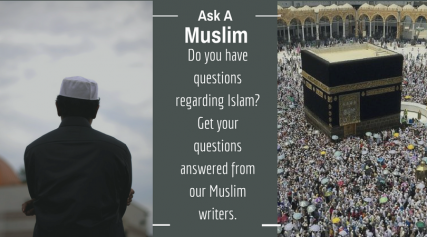What do you want to Ask a Muslim? Submit your questions online or fill out the form below.
Why do Muslims pray to Allah?
Surah Taha 20:14 in the Quran says, surely I am Allah, there is no god but I, therefore serve Me and keep up prayer for My remembrance.

But mainly, the question is rhetorical – I could easily answer with just, ‘why do Christians pray to God?’ Replace God with Allah – that’s just the name we give God, and so we pray to him as acknowledgement that he is the supreme, most benevolent and ever-present. He is the owner of the Day of Judgement, the ultimate creator and ruler.
Belief in Allah is the basic tenet of Islam. There are five basic tenets – belief in Allah as the one and only God, Muhammad as his last prophet, praying five times’ prayers during a day, 29/30 days of fasting during Ramadan, performing of Hajj at least once in one’s lifetime if possible, giving zakat (2.5 percent of all capital possessions) every year to the needy, starting from immediate family and friends.
In Surah Fatihah, 1:1, Allah dedicates the first three verses to helping us increase knowledge about him. Through increasing knowledge do we increase our love, devotion and submission to Allah. The first three verses read, “All praise is due to Allah, Lord of all that exists. The MostBeneficent, the Most Merciful. Owner of the Day of Judgement.” High state of awareness and knowledge brings scholars of Islam to ‘Tawheed’; the abilities of Allah, which make him alone worthy of worship, and empower us by seeking nearness to him by knowing, understanding and living by his names and attributes. Addressing Allah, we say in the fourth verse of Surah Fatihah “You alone do we worship and from You alone do we seek assistance”. This is why we pray to Allah.






